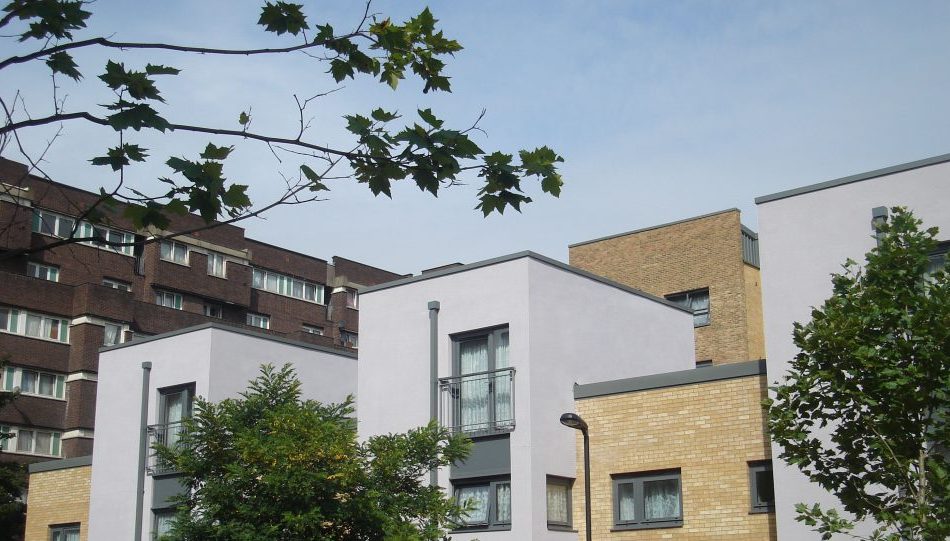Written by:
In recent weeks, various stories and statistics in the press have evidenced that tackling our housing crisis is not as simple as just building as many new houses as we can, as quickly as we can. The housing crisis has emerged from a complex combination of socio-economic trends that have come together to find us facing a shortage of homes that are accessible to people who need them, where they want them. If we are to tackle the crisis, we must consider the complexity of its causes and bring together a variety of strategies and actions. Above all, we must resolve to put people at the heart of these actions, in informing decision-making, in making things happen, but above all, taking action with the intention of improving people’s quality of life.
With this in mind, I propose three New Year’s resolutions for us to build into tackling the housing crisis.
1. Champion and commit to building high quality new homes
A recent BBC article[1] quoted some alarming statistics about issues people are having with their new build homes.
“98% of those surveyed for the latest Home Builders Federation customer satisfaction report had at least one problem to report. A quarter had 15 or more problems to flag up with the developer.”
While in any new build there is generally an element of snagging, there are too many reports[2] of homes that are simply not built to acceptable standards. Indeed, a volume house builder admitted to me some years ago, “We do build a lot of crap, but people keep buying it so we’ll keep building it.”
I believe people keep buying because there is a lack of affordable alternatives, but also because a large percentage of our population has never had access to or expectations of high quality homes. Shouldn’t we all be striving for the highest quality possible for the homes in which we live?
Let’s hope that the recent launch of DCLG’s Planning Delivery Fund, which includes a dedicated Design Quality Fund, will help support a shift in this direction. However, one fund is not enough. We all need to do more to champion and support high quality design in the UK.
2. Be strategic and creative about bringing empty properties back into use
Other stories[3] bring good news, of initiatives led by both local authorities and by communities, to bring vacant properties back into use.
Projects such as the £1 Home initiatives in Stoke on Trent and Liverpool, through which empty properties are sold for £1 under the condition that the new owner carries out a refurbishment and lives in the property for a minimum period, are seeing some positive results, both for people and for streetscapes.
This is not a new idea, with precedents here and abroad reaching back over time. Our blog post from February 2013, expressing enthusiasm for the then new initiatives in Liverpool and Stoke, shares an interesting example from Baltimore, USA in the 1970s.
Granby Four Streets, winner of the Turner Prize, showed the power of communities working together to bring a street back to life through the revitalisation of empty properties and through street-wide and neighbourhood level community initiatives.
Despite these good news stories and examples of initiatives that could be replicated in other areas, a recent report[4] reveals staggering figures on empty properties in the UK.
“More than 11,000 homes across the UK have been empty for 10 years or more, research by the Liberal Democrats has found.
The figures, from 276 local councils, show there are more than 216,000 homes across the country which have been empty for six months or more.”
We simply have to do more to bring empty properties back into use.
3. Invest in the economic regeneration of the towns and cities that would benefit from and can house increased populations
Many of these empty properties are in areas that have suffered dramatic shifts in population due to economic depression and the closure of local industry. There are towns and cities across the UK that simply don’t have enough people to make them vibrant and sustainable places.
It is obviously more profitable and financially viable in the short term to keep building new properties in the economically vibrant parts of the country. However, investment in the parts of the country where there are those empty homes and potential for economic growth, is a fundamental part of tackling the housing crisis. Investing in these areas can also help prevent the flight of local talent, which is essential to the future of these towns and cities.
Initiatives like UK City of Culture have had a huge impact. Interim findings from the University of Hull on the City of Culture in Hull, have found some heartening shifts in local economy and quality of life linked to the initiative:
- 70% of residents agree or strongly agree that UK City of Culture is having a positive impact on the lives of local people.
- Residents’ pride to live in Hull has increased (by 4%: from 70% in December 2016 to 74% in March 2017, based on data gathered through a city-wide residents’ survey).
- Since 2013, Hull City Council report the creation of approximately 89 new businesses (or businesses that have changed use) within the city centre and 550 new jobs – including new roles within the cultural sector.
Let’s make 2018 the year that we look at what has been happening across the country, and further afield, and learn from it. Solving the housing crisis will require knowledge, creativity, investment, and above all, the resolve to place high quality and improving the quality of people’s lives at the heart of our actions.
References:
[1] Homeowner on how he had 140 problems with his new house (BBC)
[2] What’s the point of building a million new homes if they’re not fit to live in? (John Harris, The Guardian)
The new homes ‘uninhabitable’ after less than a year (Emma Ailes, BBC)
Leaking sewage and rotten floorboards: life on a ‘flagship’ housing estate (John Harris, The Guardian)
New-build housing: construction defects – issues and solutions (England) (House of Commons Library briefing)
[3] Couple on how £1 house in Stoke-on-Trent changed their lives (BBC)
The £1 homes: What do you get for your money – and what do you get locked into? (Oliver Bennett, Independent)


